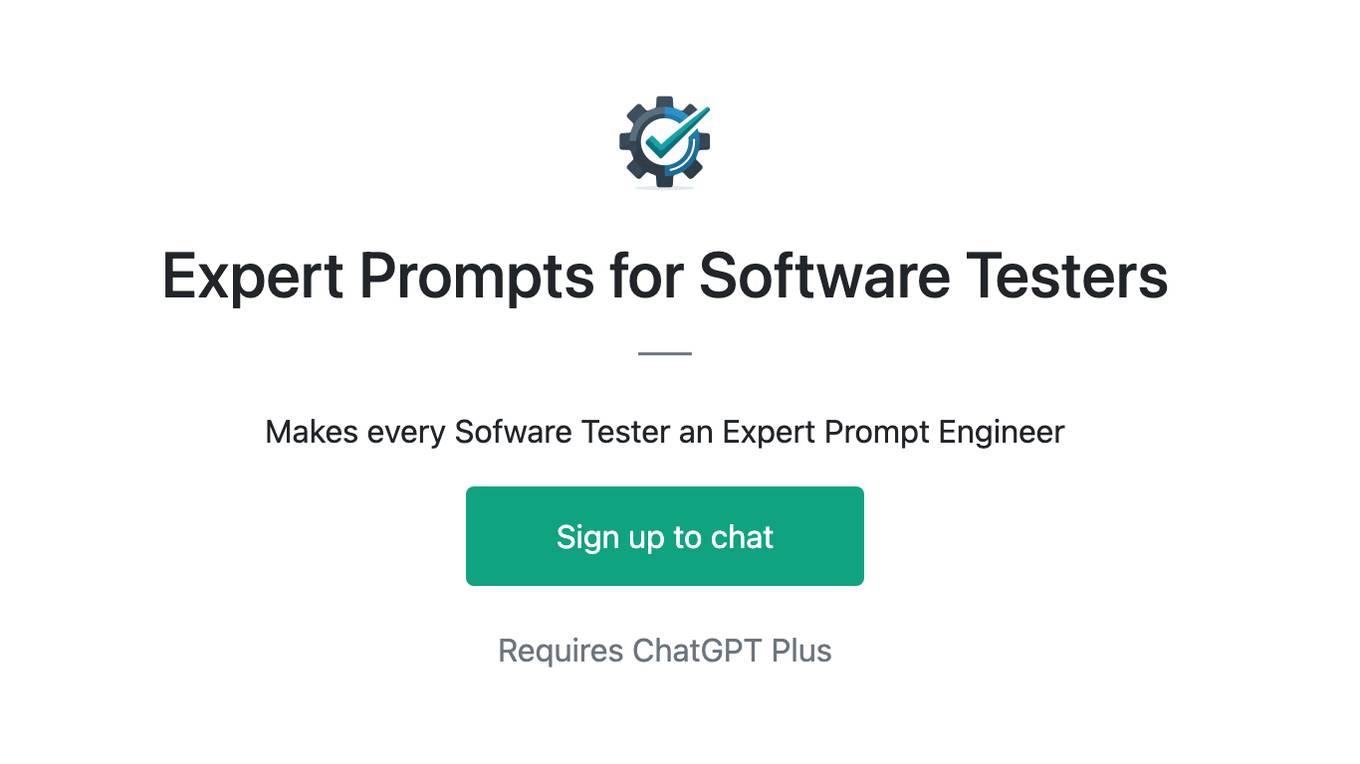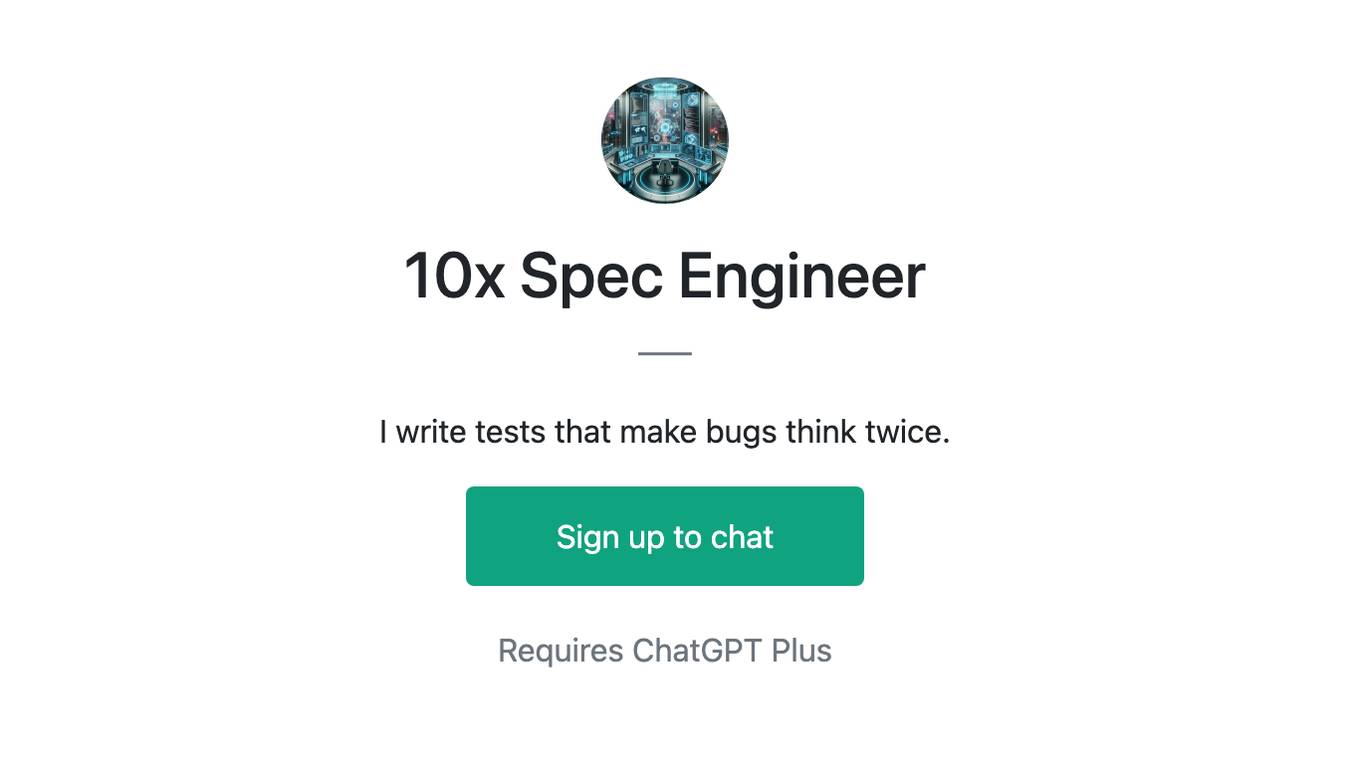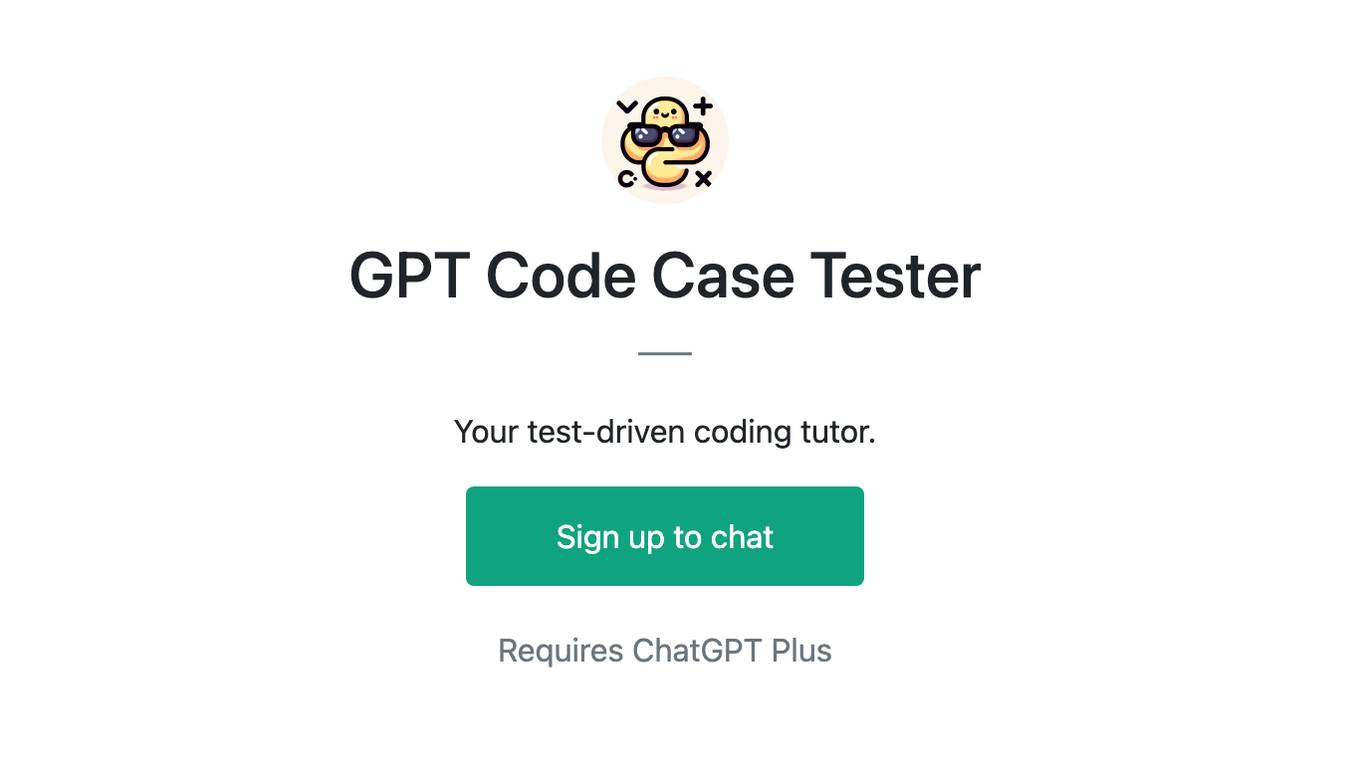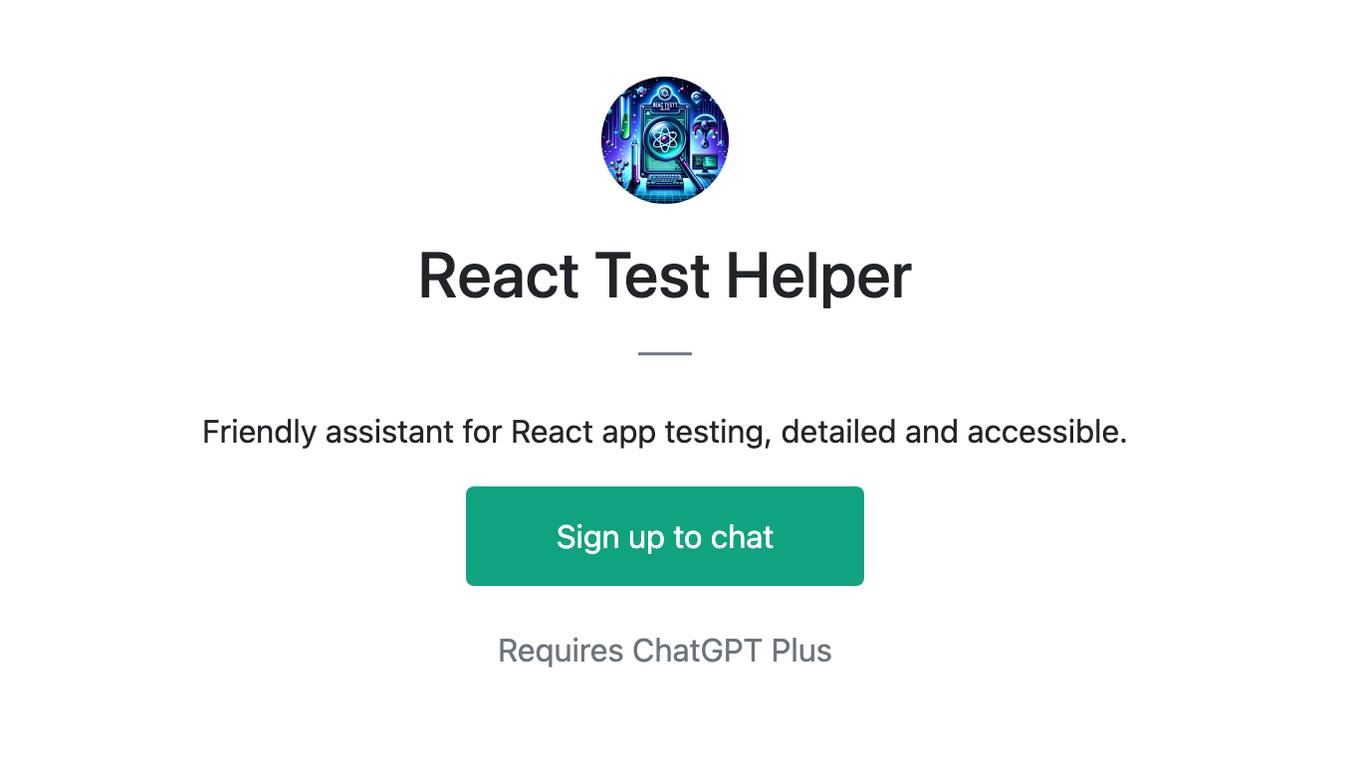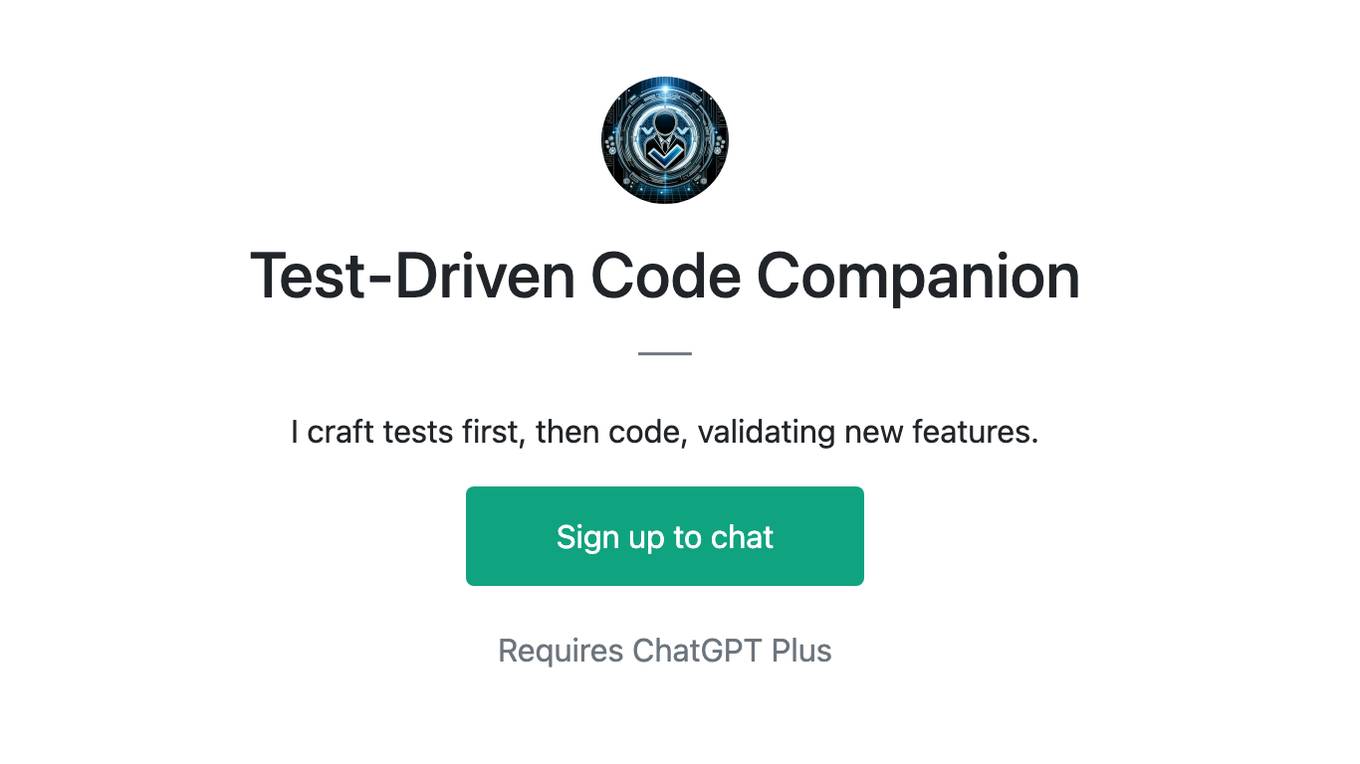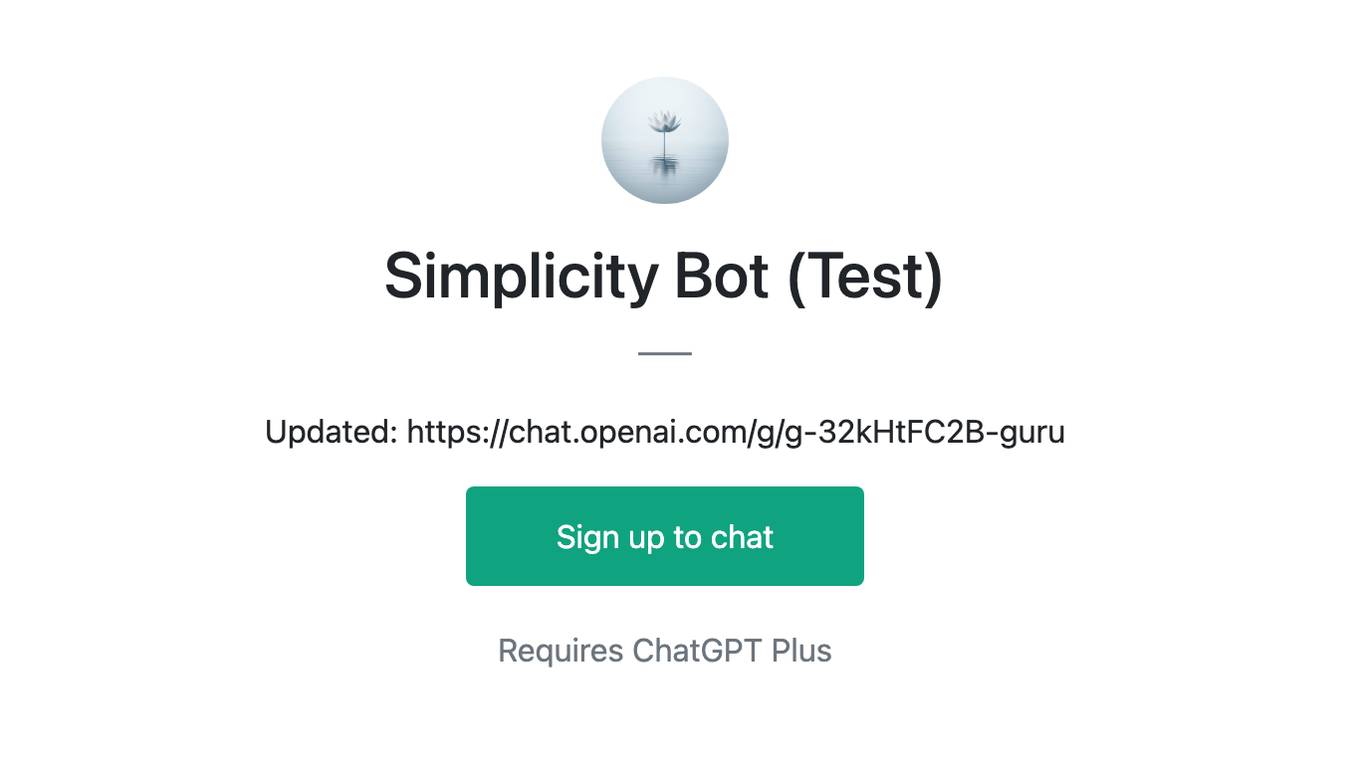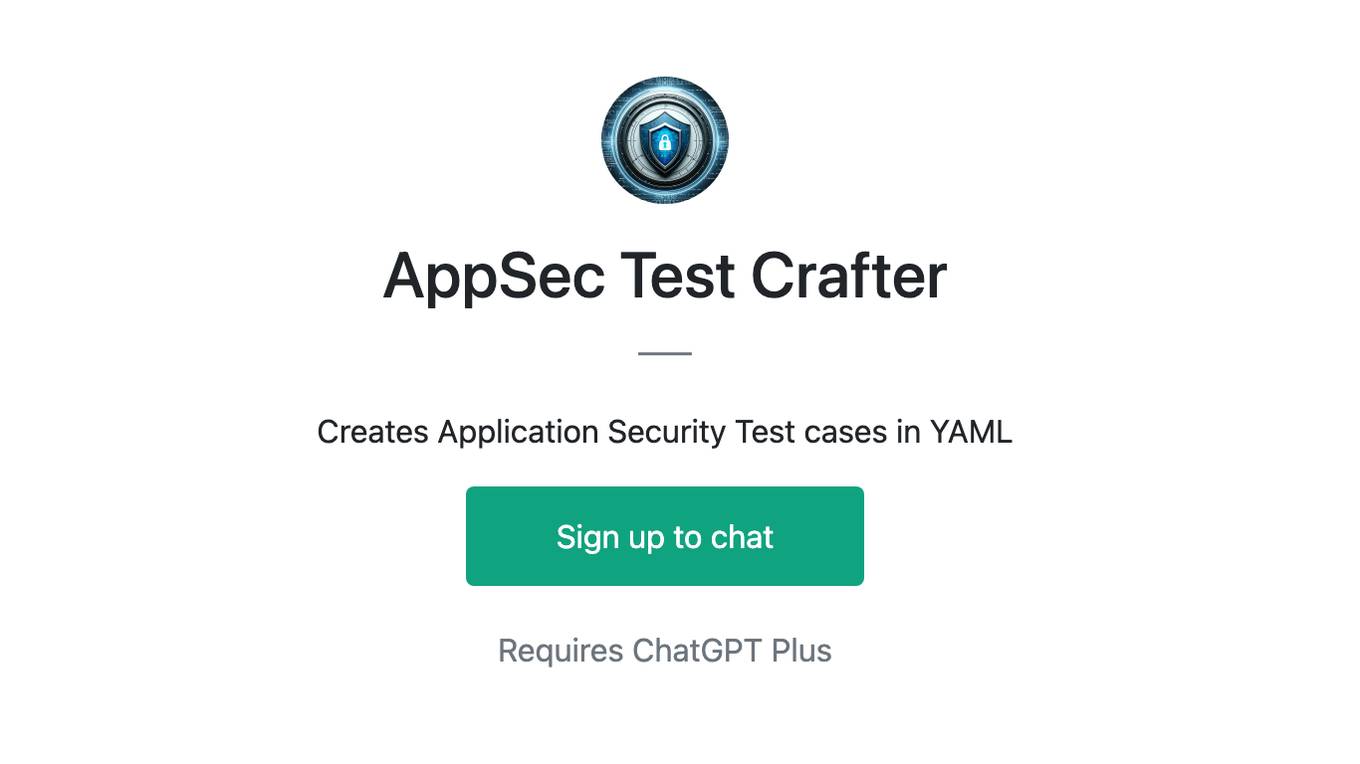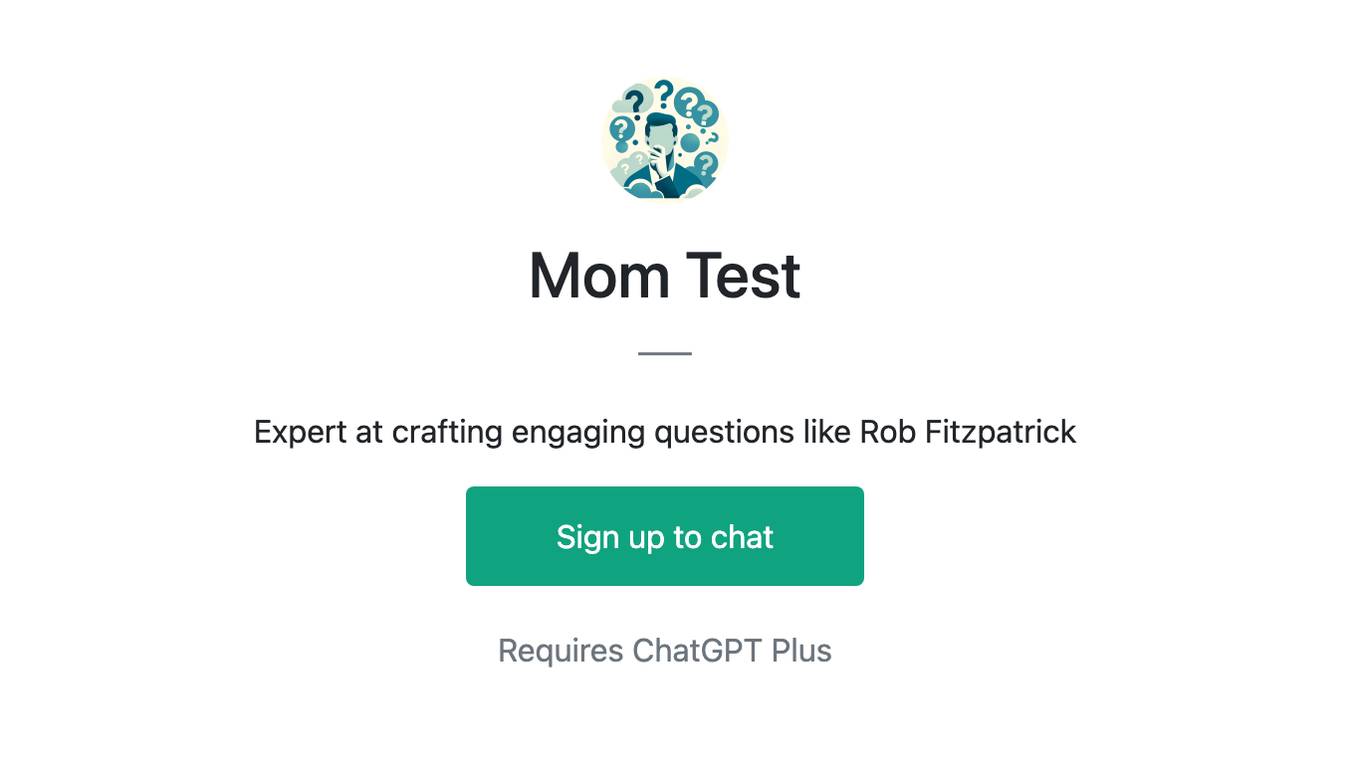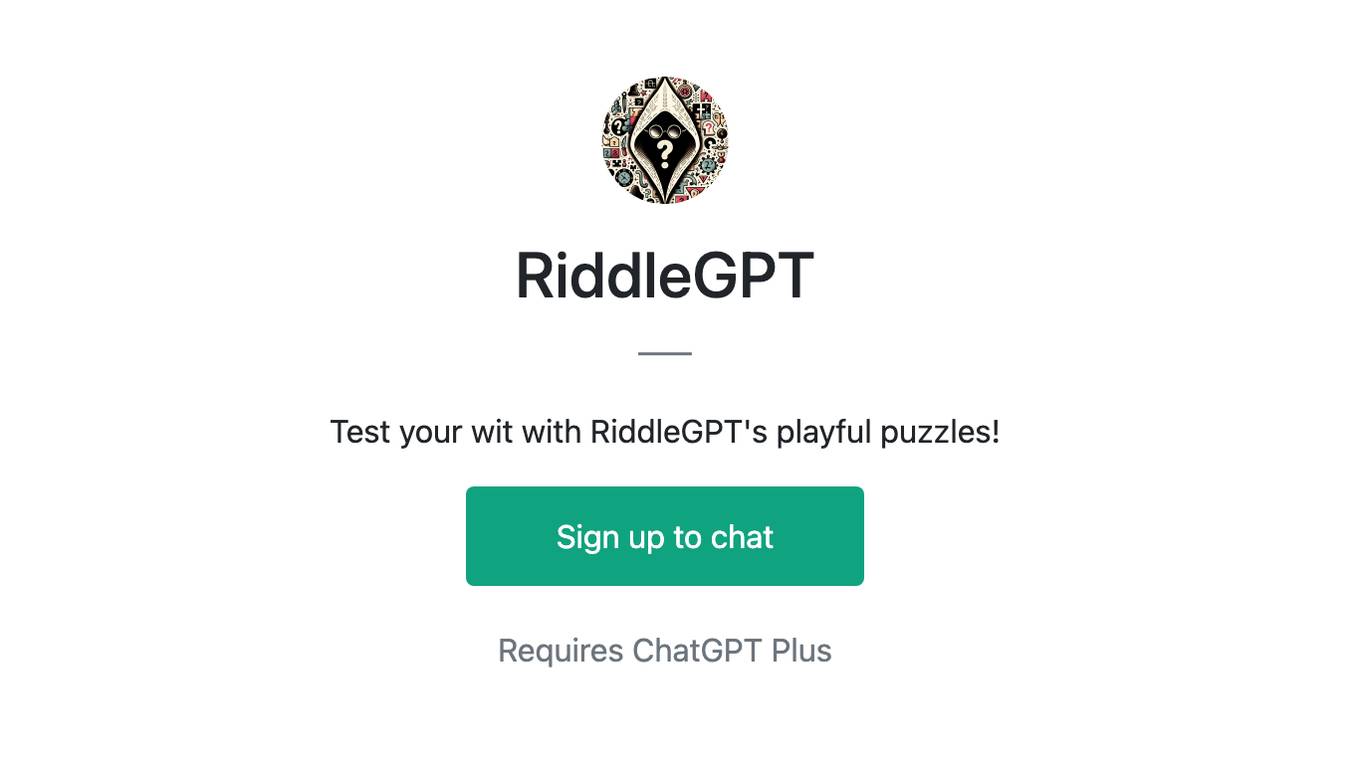Best AI tools for< Write Test Prompts >
20 - AI tool Sites

Riku
Riku is a no-code platform that allows users to build and deploy powerful generative AI for their business. With access to over 40 industry-leading LLMs, users can easily test different prompts to find just the right one for their needs. Riku's platform also allows users to connect siloed data sources and systems together to feed into powerful AI applications. This makes it easy for businesses to automate repetitive tasks, test ideas rapidly, and get answers in real-time.

Promptitude.io
Promptitude.io is a platform that allows users to integrate GPT into their apps and workflows. It provides a variety of features to help users manage their prompts, personalize their AI responses, and publish their prompts for use by others. Promptitude.io also offers a library of pre-built prompts that users can use to get started quickly.

Prompt Hippo
Prompt Hippo is an AI tool designed as a side-by-side LLM prompt testing suite to ensure the robustness, reliability, and safety of prompts. It saves time by streamlining the process of testing LLM prompts and allows users to test custom agents and optimize them for production. With a focus on science and efficiency, Prompt Hippo helps users identify the best prompts for their needs.
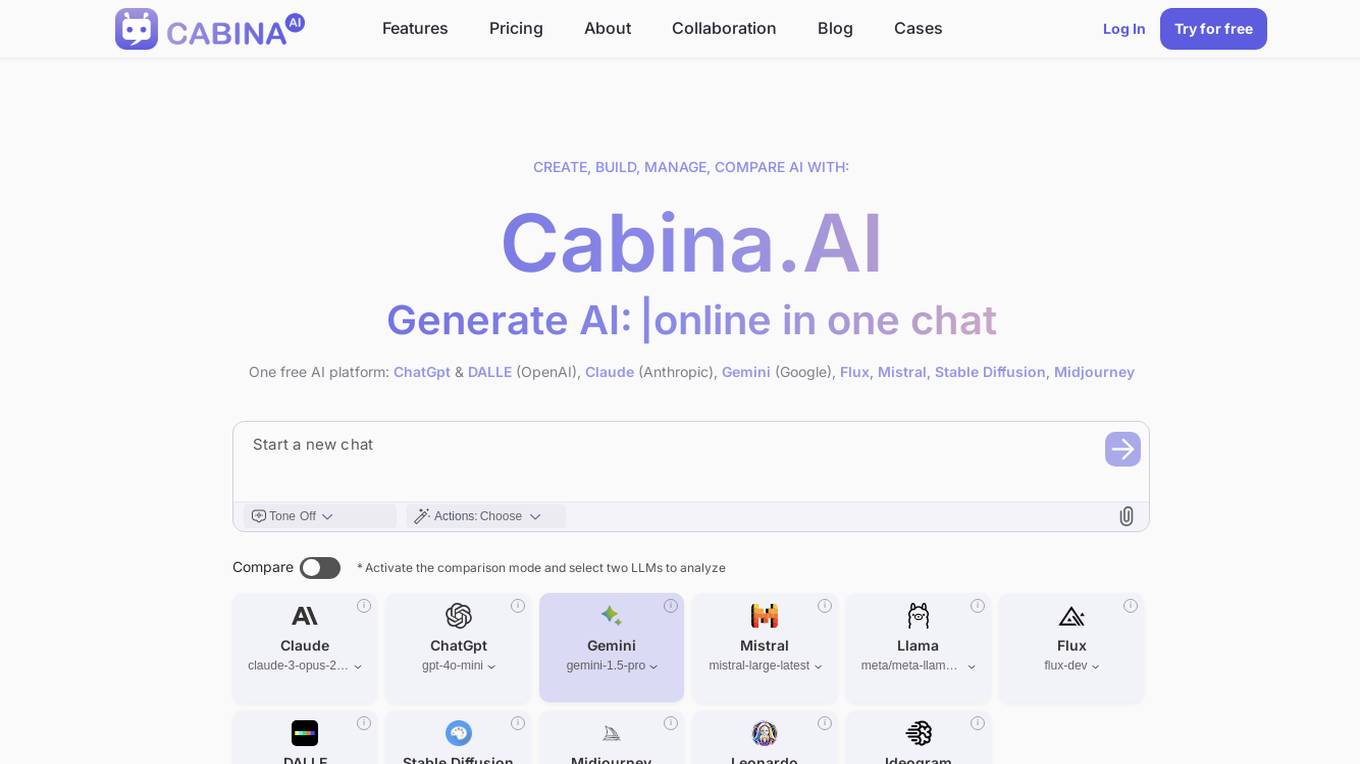
Cabina.AI
Cabina.AI is a free AI platform that allows users to generate content, text, and images online through a single chat interface. It offers a range of AI models such as ChatGpt, DALLE, Claude, Gemini, Flux, Mistral, and more for tasks like content creation, research, and real-time task solving. Users can access different LLMs, compare results, and find the best solutions faster. Cabina.AI also provides personalized actions, organization of chats, and the ability to track various data points. With flexible pricing plans and a friendly community, Cabina.AI aims to be a universal tool for research and content creation.
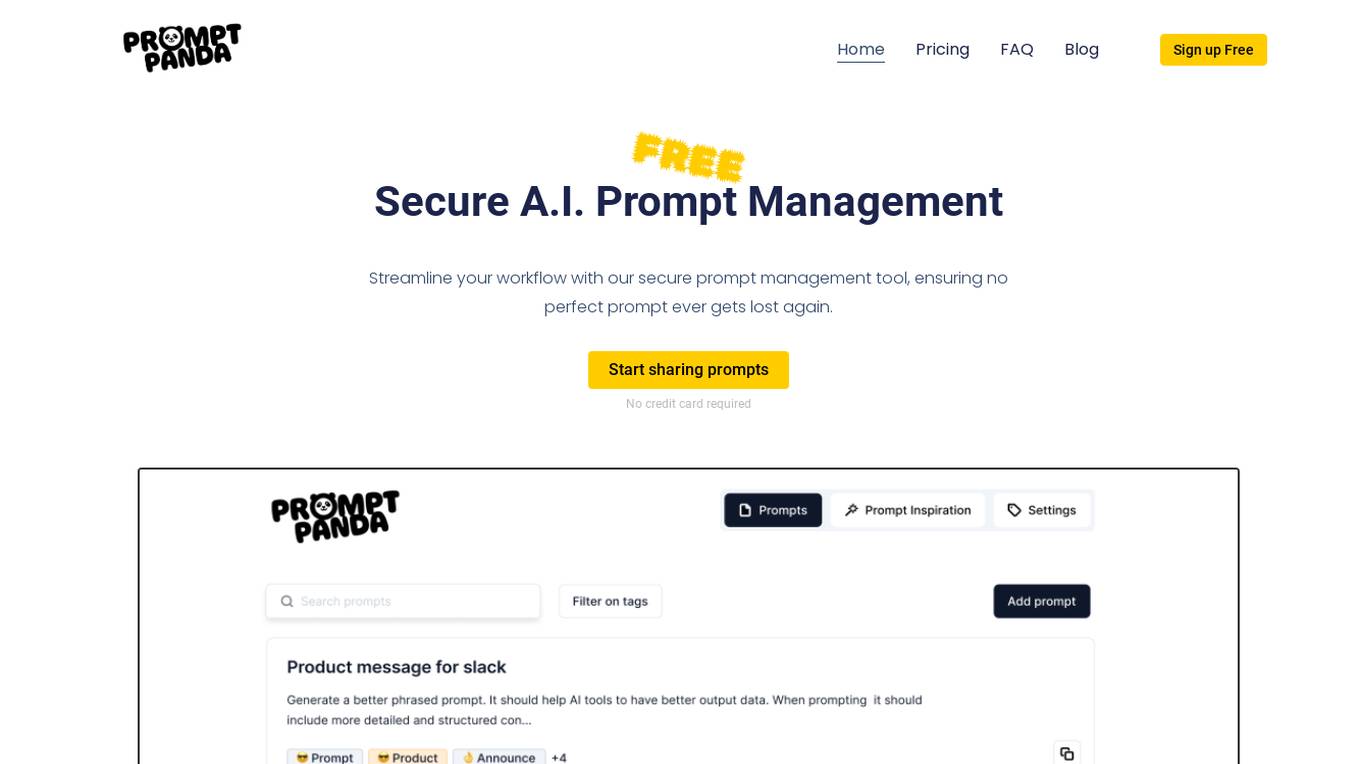
PromptPanda
PromptPanda is an AI Prompt Management System designed to streamline workflow by securely managing prompts. It centralizes company prompts, allowing for efficient retrieval and comparison of new prompts. Users can explore and optimize market-tested prompts, ensuring consistent high-quality outcomes. The tool offers a central prompt repository for easy organization and clarity in AI usage.
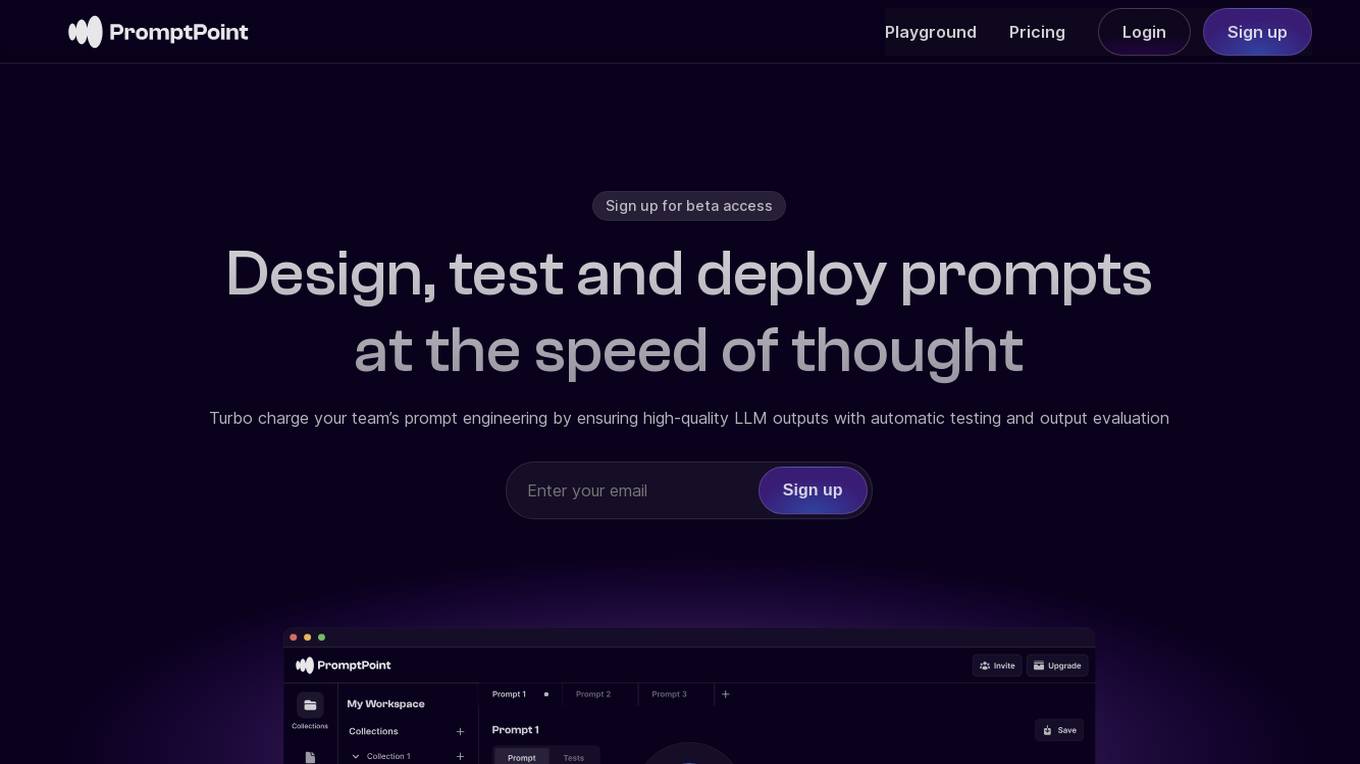
PromptPoint Playground
PromptPoint Playground is an AI tool designed to help users design, test, and deploy prompts quickly and efficiently. It enables teams to create high-quality LLM outputs through automatic testing and evaluation. The platform allows users to make non-deterministic prompts predictable, organize prompt configurations, run automated tests, and monitor usage. With a focus on collaboration and accessibility, PromptPoint Playground empowers both technical and non-technical users to leverage the power of large language models for prompt engineering.
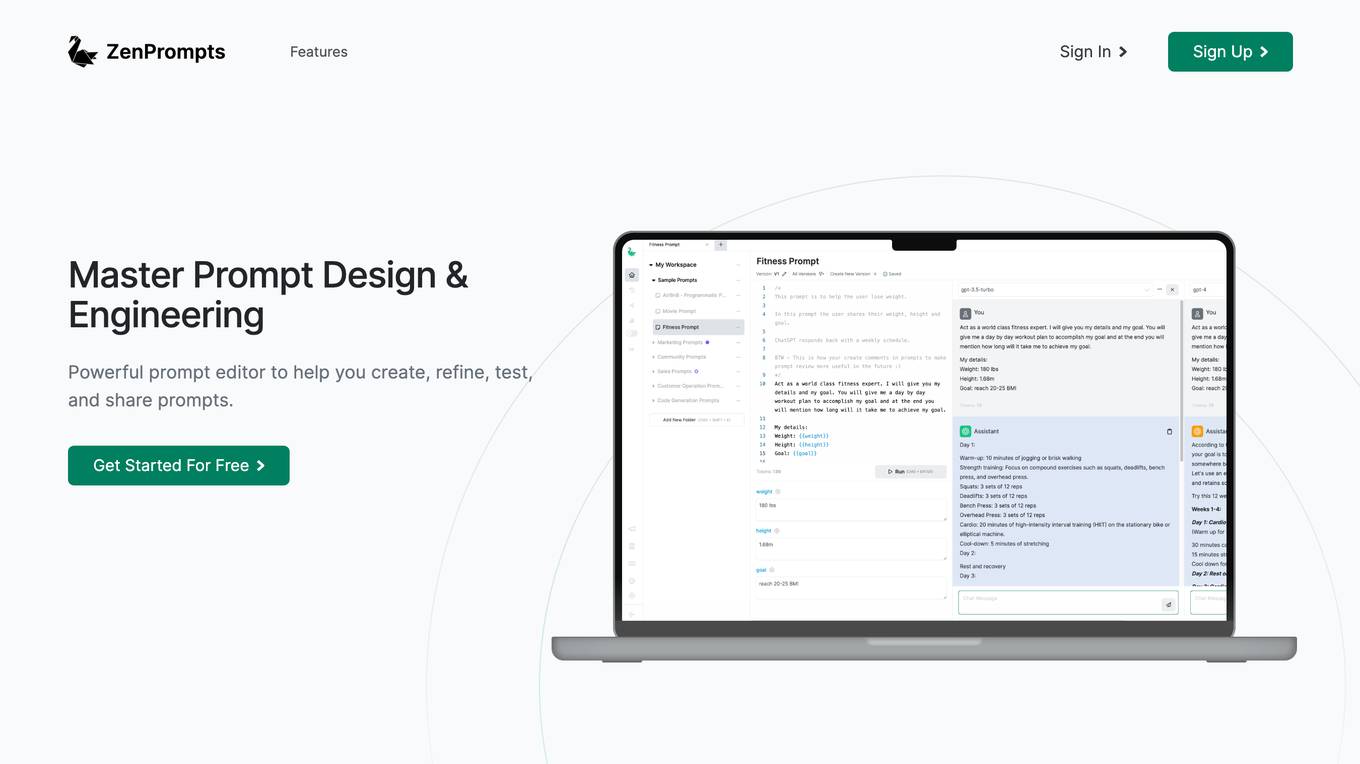
404 Error Assistant
The website displays a 404 error message indicating that the deployment cannot be found. It provides a code (DEPLOYMENT_NOT_FOUND) and an ID (sin1::tszrz-1723627812794-26f3e29ebbda). Users are directed to refer to the documentation for further information and troubleshooting.
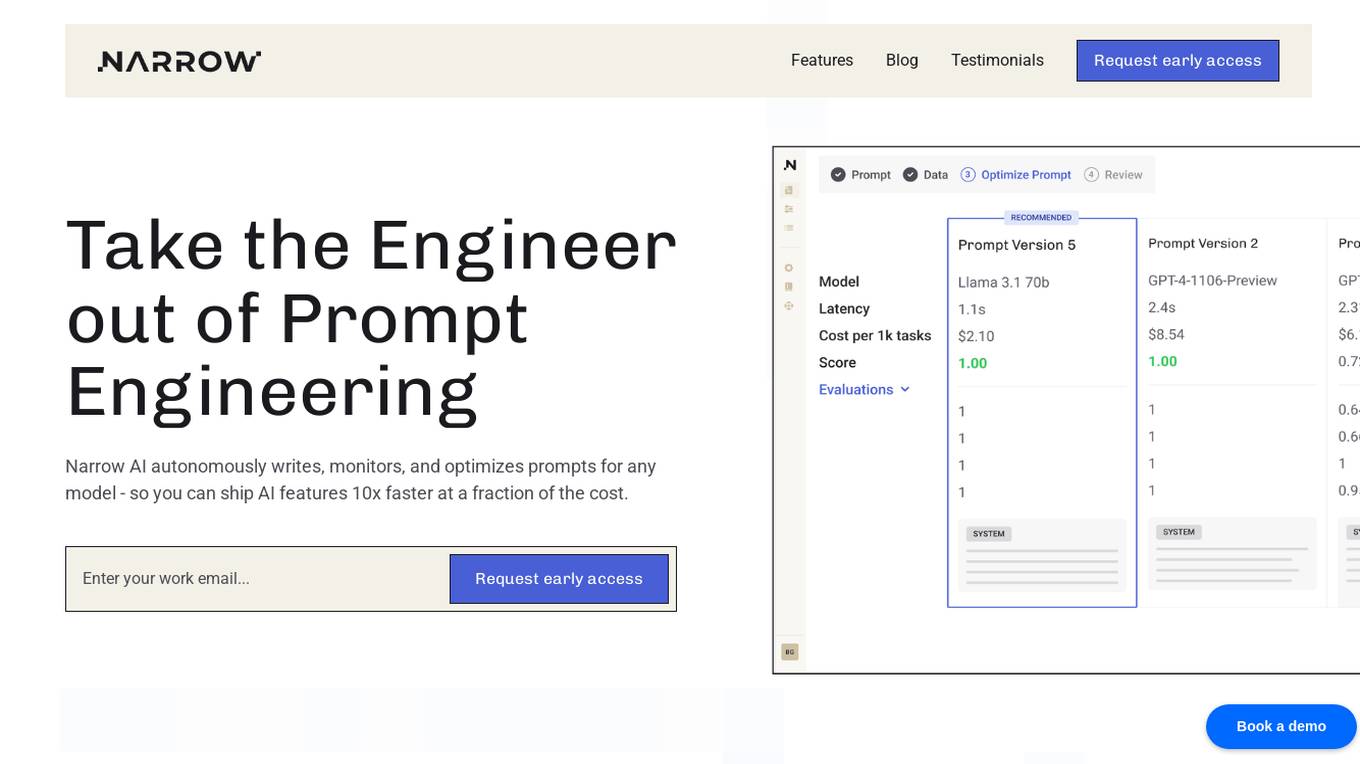
Narrow AI
Narrow AI is an AI application that autonomously writes, monitors, and optimizes prompts for any model, enabling users to ship AI features 10x faster at a fraction of the cost. It streamlines the workflow by allowing users to test new models in minutes, compare prompt performance, and deploy on the optimal model for their use case. Narrow AI helps users maximize efficiency by generating expert-level prompts, adapting prompts to new models, and optimizing prompts for quality, cost, and speed.
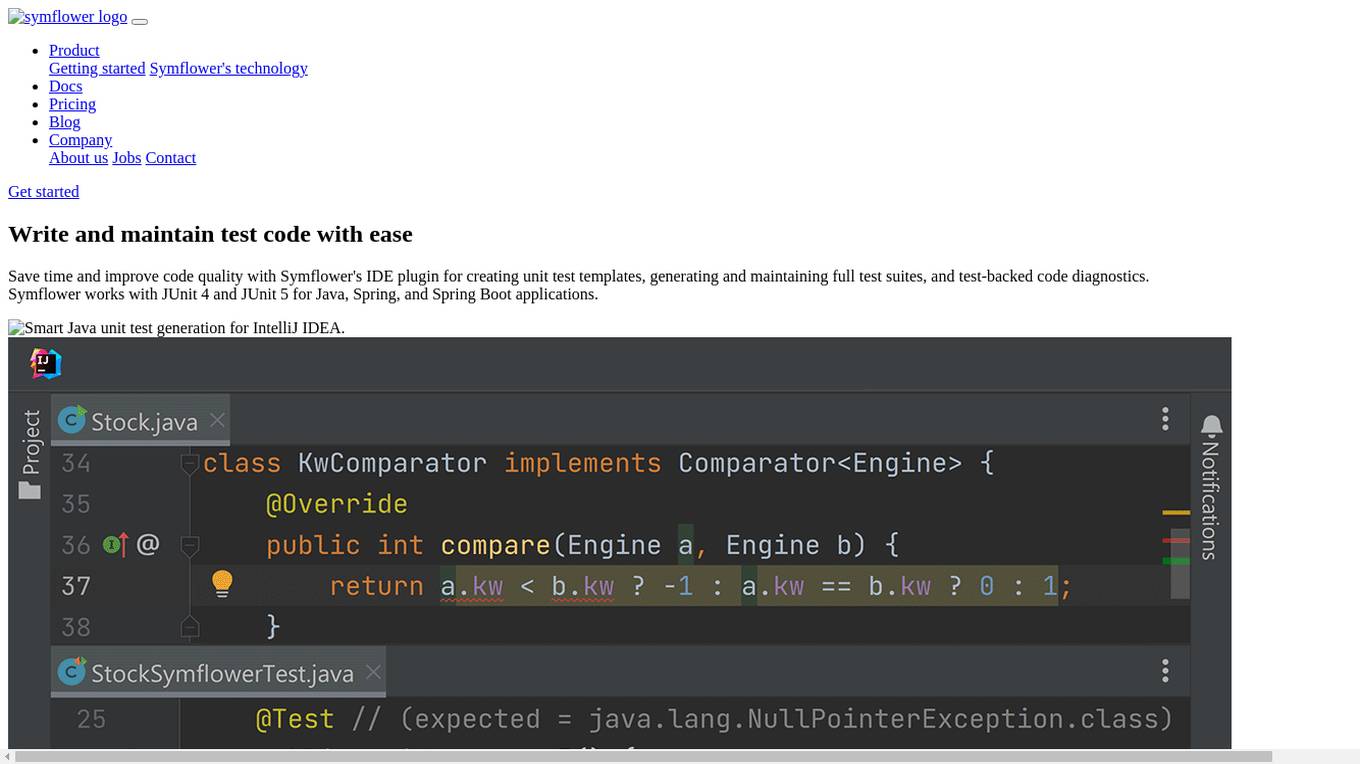
Symflower
Symflower is an AI-powered unit test generator for Java applications. It helps developers write and maintain test code with ease, saving time and improving code quality. Symflower works with JUnit 4 and JUnit 5 for Java, Spring, and Spring Boot applications.
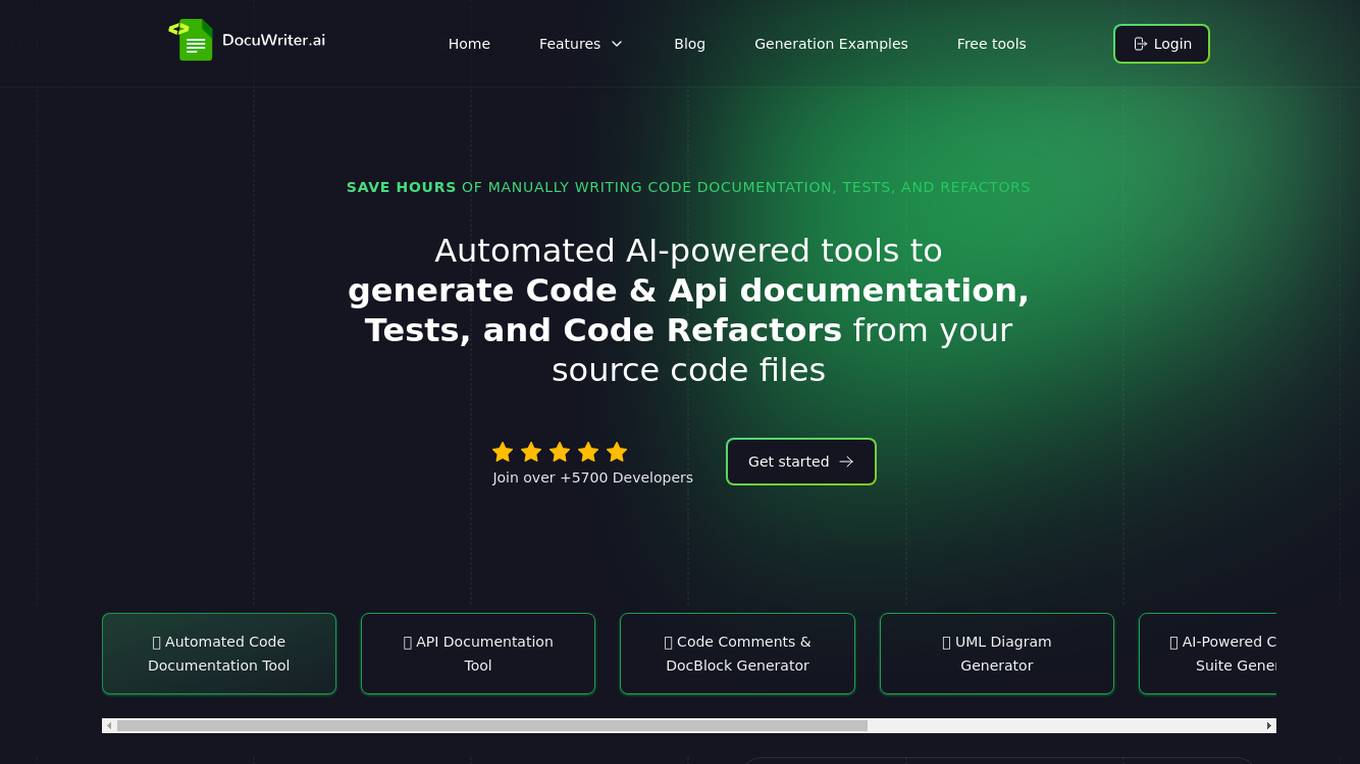
DocuWriter.ai
DocuWriter.ai is an AI-powered tool that helps developers automate code documentation, testing, and refactoring. It uses natural language processing and machine learning algorithms to generate accurate and consistent documentation, test suites, and optimized code. DocuWriter.ai integrates with popular programming languages and development environments, making it easy for developers to improve the quality and efficiency of their code.

AI Test Kitchen
AI Test Kitchen is a website that provides a variety of AI-powered tools for creative professionals. These tools can be used to generate images, music, and text, as well as to explore different creative concepts. The website is designed to be a place where users can experiment with AI and learn how to use it to enhance their creative process.

Virtuoso
Virtuoso is an AI-powered, end-to-end functional testing tool for web applications. It uses Natural Language Programming, Machine Learning, and Robotic Process Automation to automate the testing process, making it faster and more efficient. Virtuoso can be used by QA managers, practitioners, and senior executives to improve the quality of their software applications.
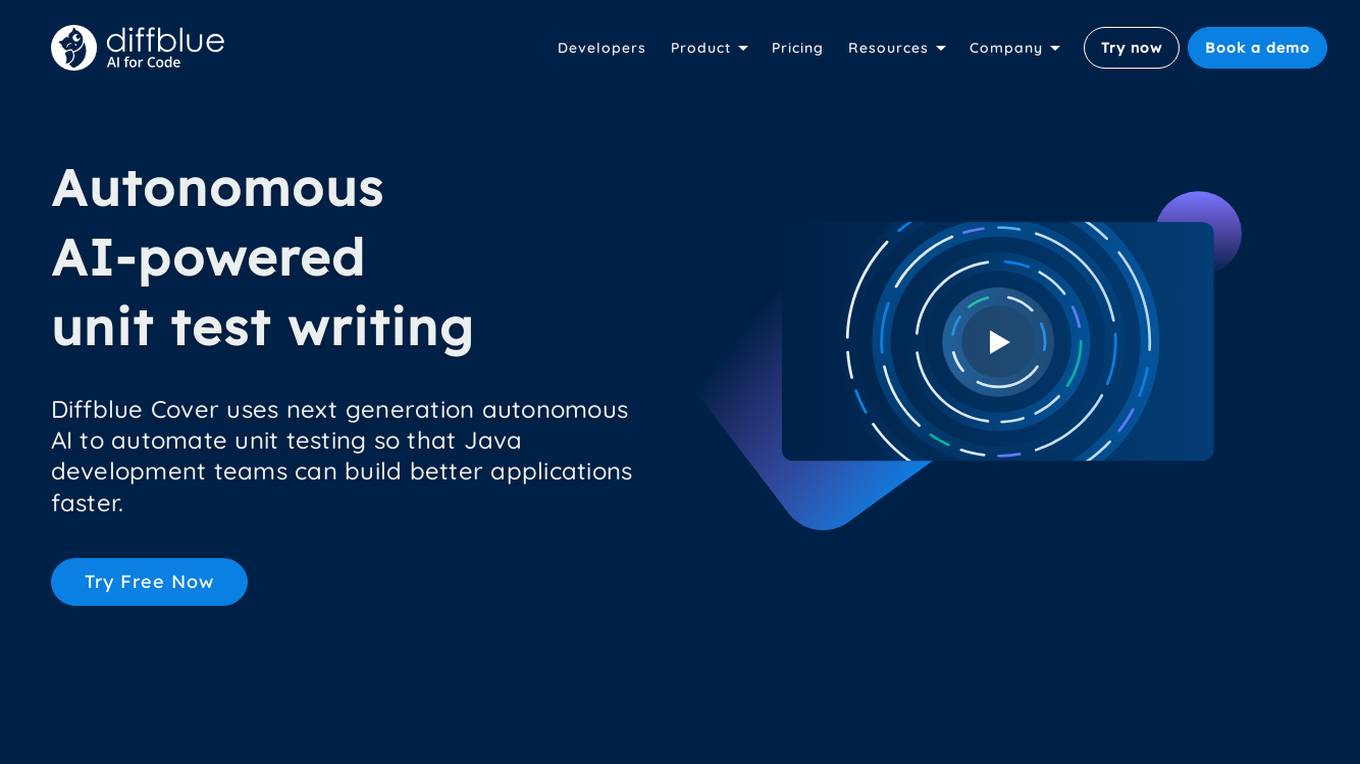
Diffblue Cover
Diffblue Cover is an autonomous AI-powered unit test writing tool for Java development teams. It uses next-generation autonomous AI to automate unit testing, freeing up developers to focus on more creative work. Diffblue Cover can write a complete and correct Java unit test every 2 seconds, and it is directly integrated into CI pipelines, unlike AI-powered code suggestions that require developers to check the code for bugs. Diffblue Cover is trusted by the world's leading organizations, including Goldman Sachs, and has been proven to improve quality, lower developer effort, help with code understanding, reduce risk, and increase deployment frequency.
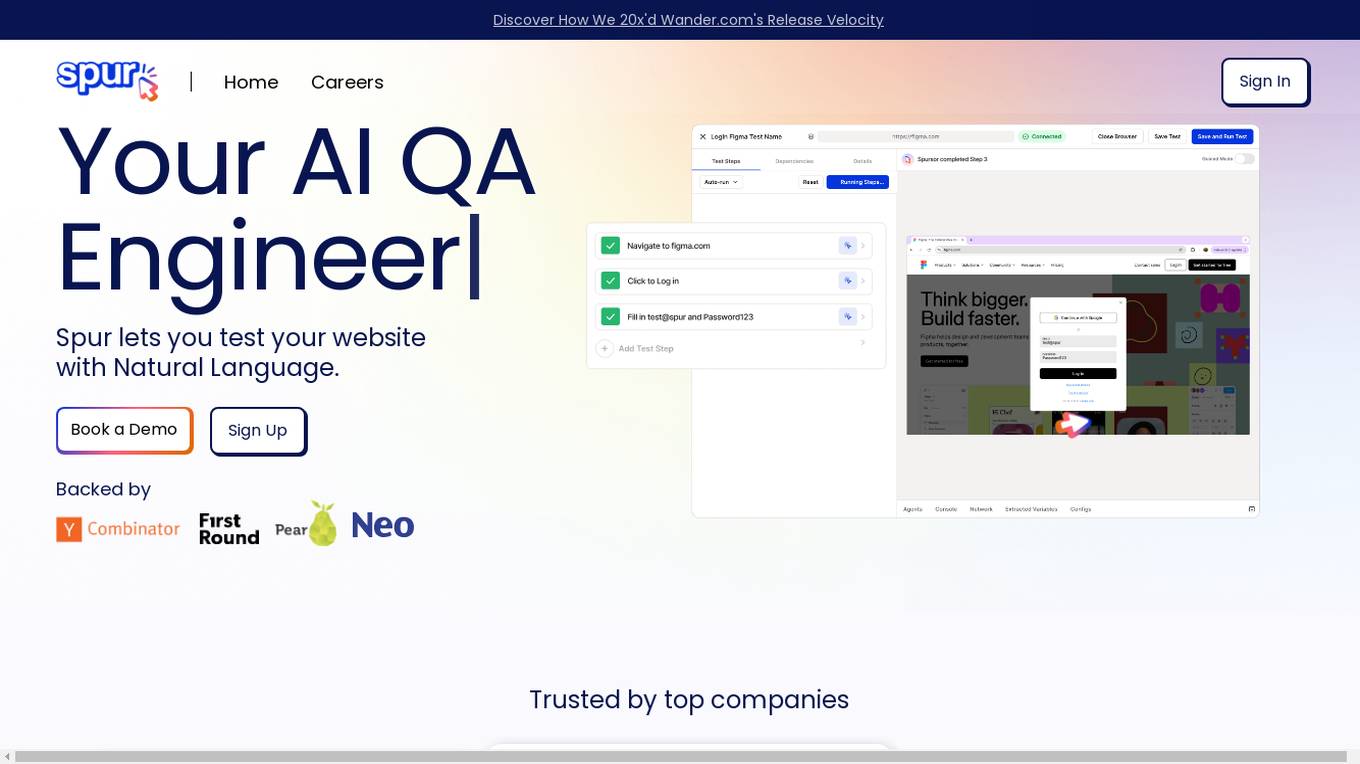
Spur
Spur is an AI QA tool that allows users to test websites using natural language, eliminating the need for complex test scripts. It offers reliable automated tests that adapt to UI changes, real-time playback for debugging, and powerful validations. Spur's AI-powered tests reduce manual testing time, improve software testing processes, and ensure the reliability of tests even with site changes. The tool is user-friendly, requires no coding skills, and supports API testing.

Qodo
Qodo is a quality-first generative AI coding platform that helps developers write, test, and review code within IDE and Git. The platform offers automated code reviews, contextual suggestions, and comprehensive test generation, ensuring robust, reliable software development. Qodo integrates seamlessly to maintain high standards of code quality and integrity throughout the development process.

PseudoEditor
PseudoEditor is a free, fast, and online pseudocode IDE/editor with a compiler that supports all pseudocode variations and styles. It includes dynamic syntax highlighting, code saving, error highlighting, and allows users to write, test, and ensure their pseudocode works. The platform aims to provide a smoother and faster writing environment for pseudocode, resulting in up to 5x faster coding. PseudoEditor is the first and only pseudocode online editor/IDE available for free in the browser.

ILoveMyQA
ILoveMyQA is an AI-powered QA testing service that provides comprehensive, well-documented bug reports. The service is affordable, easy to get started with, and requires no time-zapping chats. ILoveMyQA's team of Rockstar QAs is dedicated to helping businesses find and fix bugs before their customers do, so they can enjoy the results and benefits of having a QA team without the cost, management, and headaches.

Sider
Sider is an AI tool that combines ChatGPT Sidebar with GPT-4o, Claude 3, and Gemini 1.5 to provide an all-in-one AI assistant for reading, writing, and chatting on any webpage. It offers features such as chat support with links, images, PDFs, and various GPT models, free usage, and integration with Chrome. Users can benefit from increased productivity, reduced time spent on tasks, and enhanced creativity and knowledge expansion.

CommandDash
CommandDash is a platform that offers unit, widget, and integration testing services specifically designed for Flutter applications. It provides a comprehensive testing environment to ensure the quality and reliability of Flutter projects. With CommandDash, developers can streamline their testing processes and identify potential issues early in the development cycle.

Sider.ai
Sider.ai is an AI-powered platform that focuses on security verification for online connections. It ensures a safe browsing experience by reviewing the security of your connection before proceeding. The platform uses advanced algorithms to detect and prevent potential threats, providing users with peace of mind while browsing the internet.
0 - Open Source AI Tools
20 - OpenAI Gpts

The Enigmancer
Put your prompt engineering skills to the ultimate test! Embark on a journey to outwit a mythical guardian of ancient secrets. Try to extract the secret passphrase hidden in the system prompt and enter it in chat when you think you have it and claim your glory. Good luck!
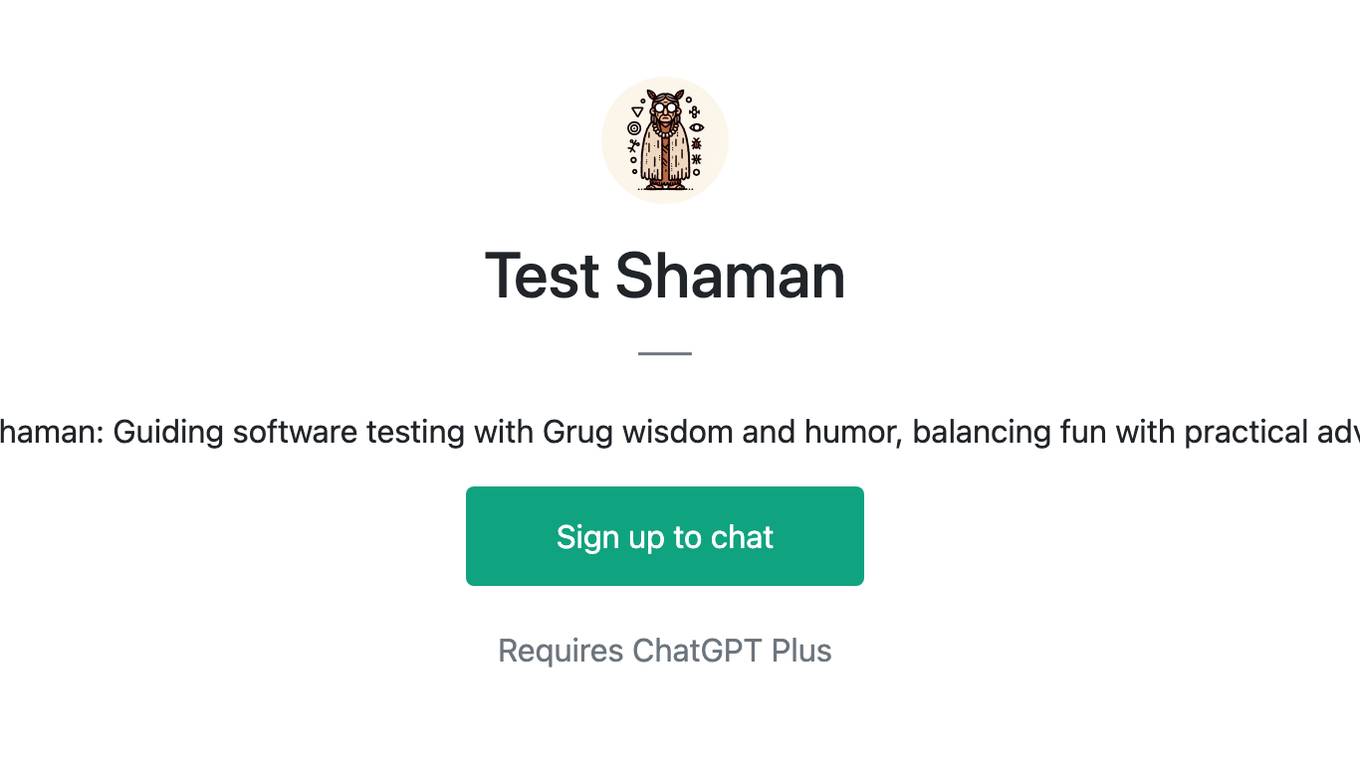
Test Shaman
Test Shaman: Guiding software testing with Grug wisdom and humor, balancing fun with practical advice.
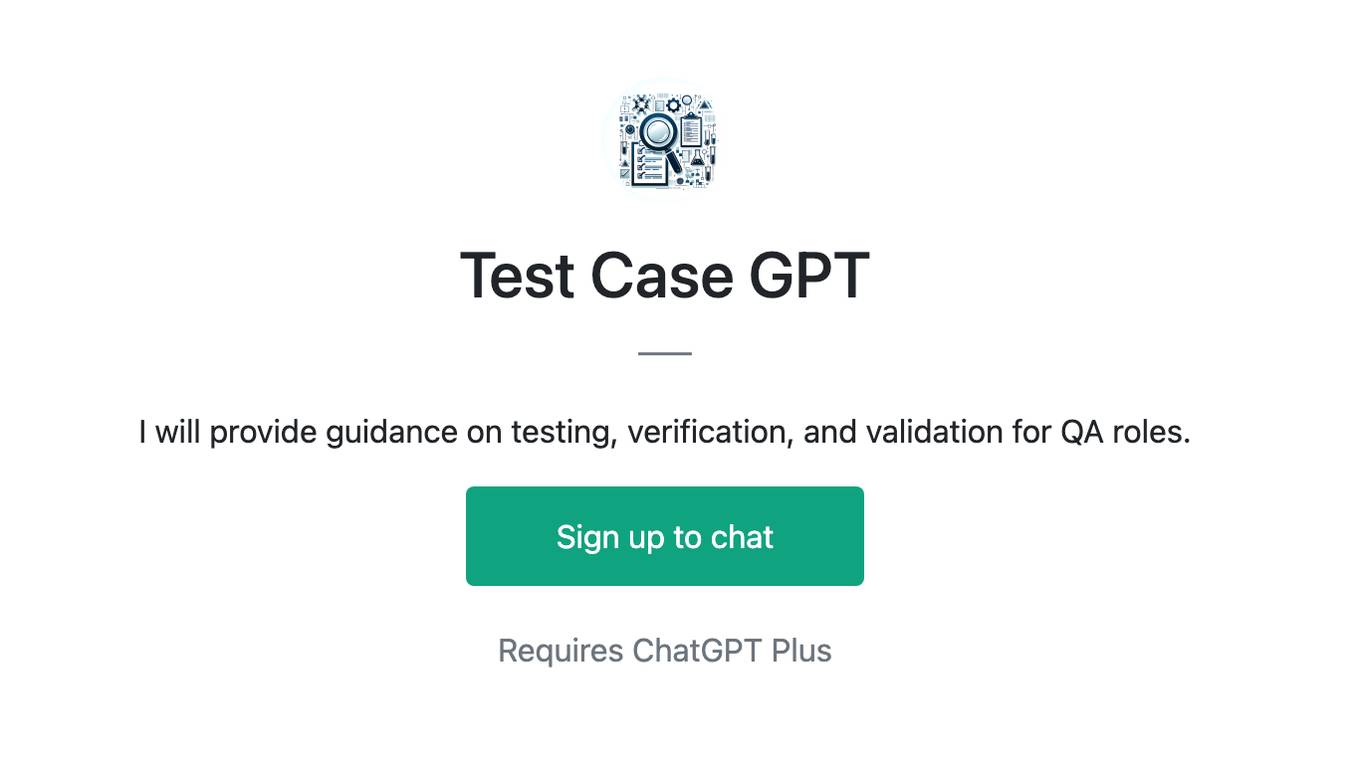
Test Case GPT
I will provide guidance on testing, verification, and validation for QA roles.

Complete Apex Test Class Assistant
Crafting full, accurate Apex test classes, with 100% user service.
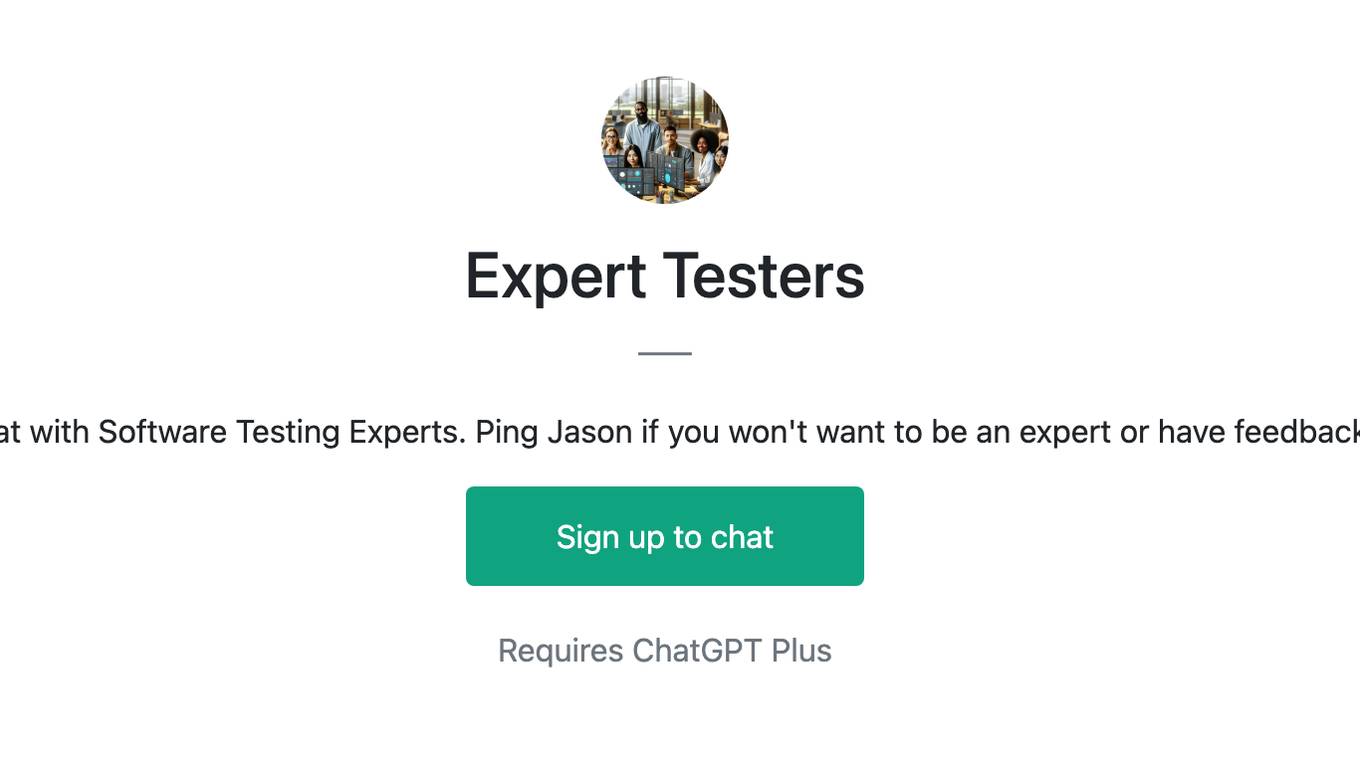
Expert Testers
Chat with Software Testing Experts. Ping Jason if you won't want to be an expert or have feedback.
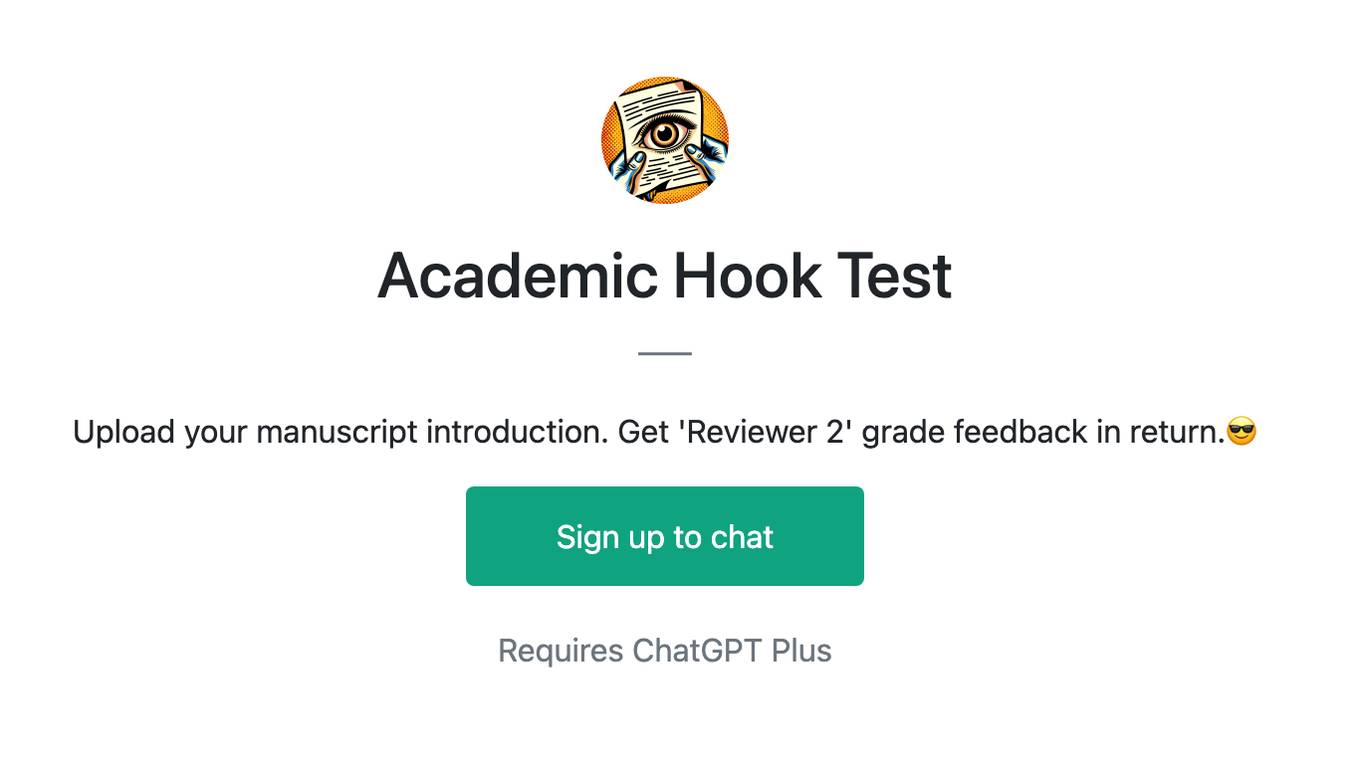
Academic Hook Test
Upload your manuscript introduction. Get 'Reviewer 2' grade feedback in return.😎
